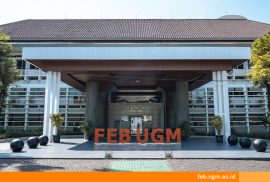Access to finance became quite disturbing business continuity issues relating to micro entrepreneurs. Because of the survey conducted in 2011 showed less than 20 percent of Indonesian people who have access to the bank for credit.
According to Abdul Jabir Uksim, the economic downturn on developing countries more due to the inability to raise capital institutions are typical for micro-enterprises. Though based on data Koperasi and SIUP (Business and Trade License) in 2013, microeconomics activists in Indonesia reached 98.78 percent with a turnover of 300 million per year, or 25 million per month.
“Capital base from which, they can develop such as what, if left as it will continue in the position of the micro and small, and when to medium or hold onto anything. This has been a concern,” said Chairman of the Small Business Incubation Center in seminar themed People’s Economics Building the Economy Towards Independent Village “Advancing Micro Finance People’s Economy” at the Faculty of Economics and Business UGM, on Tuesday ( 21/1 ) .
Micro-entrepreneurs, said Abdul Jabir Uksim, need access to information, public services, administrative bureaucracy, input output markets, technologies, networks and finance. Of those, the finance became the most important thing because the others will be developed in accordance with the scale of the effort required.
“Aspects finance is what causes growth, could lead counseling and guidance for farmers, for example, from on-farm and to have greatest added value,” he explained.
Abdul Jabir Uksim argued to simplify access to financial institutions, micro finance institutions need to be established. In order to meet the needs of the community, the farmer community for example needs to be collected to formed institutions similar with Koperasi. With a kind of Koperasi, they receive training, certification and financing channel.
“We have three resources access on early financing through Koperasi, Amanah Centura Syariah, micro-finance institutions. These three institutions are usually incubate early, which will provide capacity building, training, mentoring system which is expected to make them self-sufficient,” he said.
Eko Suwardi, M.Sc., Ph.D., vice Dean for Planning and Information System of FEB UGM revealed despite best efforts, however, due to limited communication and ego factor makes all the micro entrepreneurs do not connect. Because it is necessary initiatives to advance themselves, their families and communities.
“Let the factor’s ego that inhibits us beat, the more important is how to initiatives that exist in our society, farmers, micro-businesses and together in order to building the village, district, Jogjakarta and at last to build Indonesia,” he said.
Prof. Dr. Gunawan Sumodiningrat adding the key to success in national development is in financial management. People build must to work to earn that ultimately support herself. “Working for savings, savings are managed by the financial institutions and the Indonesian people fall asleep for so long, that the real development is from the people, by the people for the people,” he added.
Source: Agung/UGM




